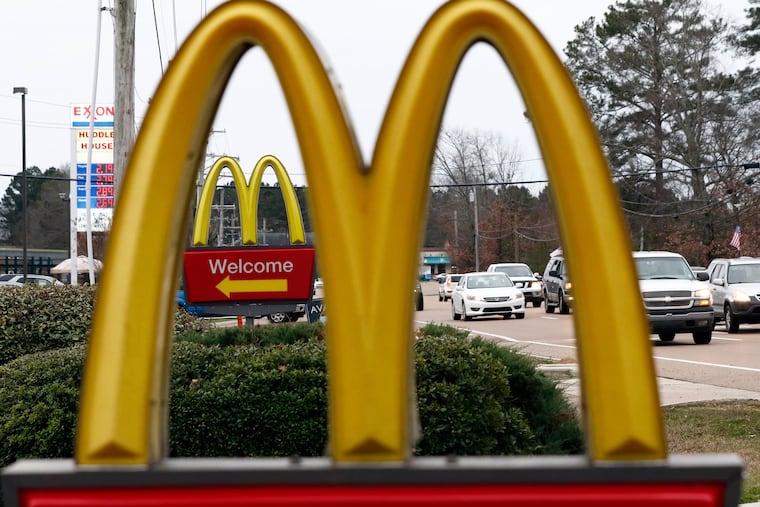Fast-food chains agree to end no-poaching agreements
Seven fast-food companies announced Thursday that they will no longer use no-poaching agreements — which prevent employees from switching between franchises within chains — in their contracts. The decision comes days after a team of state attorneys general, including Pennsylvania's and New Jersey's, requested information from eight chains about their use of the agreements.

In the midst of an investigation backed by Pennsylvania's and New Jersey's attorneys general as well as nine others, seven fast-food chains have decided to end a practice of preventing employees from switching between franchises within fast-food chains.
The policies, known as "no-poaching" agreements, may contribute to low wages for fast-food workers by preventing them from looking for better offers, economists say.
The seven companies — Arby's, McDonald's, Jimmy John's, Buffalo Wild Wings, Carl's Jr., Auntie Anne's, and Cinnabon — will remove these agreements from franchise employment contracts nationwide. In response to the announcement, Pennsylvania Attorney General Josh Shapiro said on Twitter that it is a "win for workers."
In a statement, Shapiro said the announcement "shows that change in behavior is happening already," but the investigation into other fast-food chains' policies is "live and ongoing."
"When I sent a letter this week to eight national fast-food franchises, seeking information about 'no-poach' clauses in their employment agreements, I did it to force change in corporate behavior and end this practice harming Pennsylvania workers," he said.
Of the companies agreeing to stop the practice, only Arby's was one of the eight fast-food chains the team of eleven attorneys general sent a letter to Monday requesting information about no-poaching agreements in the companies' contracts. (The others were Burger King, Wendy's, Five Guys, Little Caesars, Panera, Dunkin' Donuts, and Popeye's Louisiana Kitchen.) The letter said they found that 80 percent of fast-food companies use no-poaching agreements in their contracts.
Shapiro said in a news release Monday that the use of these agreements "unfairly exploits working women and men, especially low-wage workers."
"Many employees only learn these agreements exist when they are denied the chance to advance to a better job, earn more money, or obtain family-friendly schedule options," he said. "It's wrong, and I'm standing up and fighting for the rights of Pennsylvanians not to be exploited."
The investigation and subsequent decisions to end no-poaching agreements comes after N.J. Sen. Cory Booker and Mass. Sen. Elizabeth Warren, both Democrats, in March put forward legislation that would outlaw the policy. That legislation also targeted companies such as Jiffy Lube and H&R Block, but has not made much progress in Congress.
"This is patently unfair and against the ideals of a so-called free market," Booker said in a March interview with the Washington Post. "It's antidemocratic, and it's hurting people."
Along with Shapiro and New Jersey Attorney General Gurbir Grewal, the team is made up of the attorneys general from New York, the District of Columbia, Rhode Island, Maryland, Illinois, California, Minnesota, and Oregon, and the attorney general from Massachusetts — Maura Healey — leading the investigation.